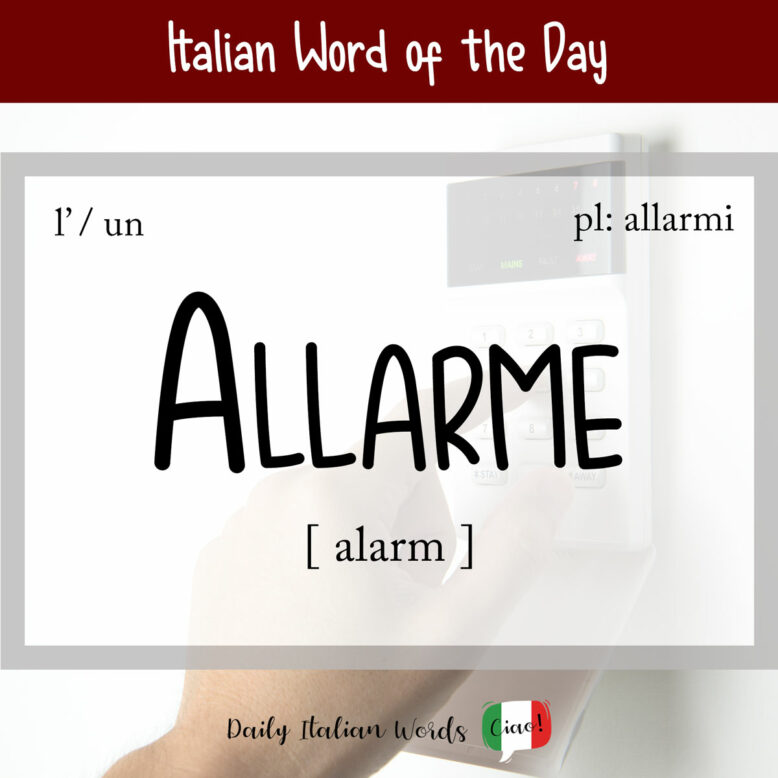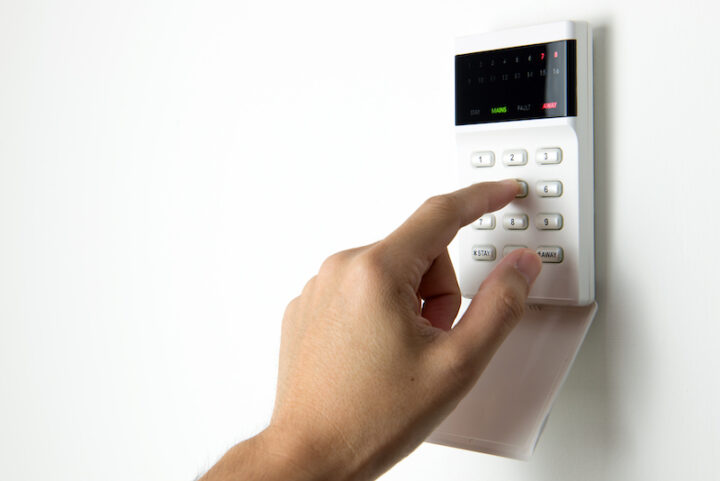The word for alarm in Italian is allarme (masculine, plural: allarmi). It derives from the military expression All’arme! (To arms!) which was, and still is, a command to soldiers to take up their weapons and be ready to fight. Arme was the ancient plural of arma (weapon) but it has since been replaced by armi.

In addition to being a warning, allarme can also refer to an electronic device or system designed for the purpose of:
- detecting and reporting a theft or break-in (allarme antifurto = burglar alarm, often shortened to just antifurto)
- indicating abnormalities in the operation of appliances or machinery
- detecting a fire (allarme antincendio = fire alarm)
L’allarme della mia automobile fa le bizze. Scatta ogni volta che apro la portiera.
My car alarm is acting weird. It goes off every time I open the door.

Some verbs you’ll often see used with allarme include:
- dare l’allarme = to raise the alarm
- suonare l’allarme = to sound the alarm
- stare / essere in allarme = to be on the alert
- far scattare un allarme = to set off an alarm
- inserire / disinserire l’allarme = to turn on / off the alarm
What allarme cannot refer to however is an alarm clock, which is known as a sveglia (derived from the verb svegliare ‘to wake up’).
False alarm is known as falso allarme in Italian whereas an alarm bell translates as campanello d’allarme. You can also use the latter in a figurative way to mean warning sign.
I gravi fatti della settimana scorsa costituiscono un campanello d’allarme che non può essere ignorato.
The serious events of last week are a warning sign that cannot be ignored.

Did you know?
Procurato allarme is a type of offence involving a person who misleads the authorities about a non-existent disaster, accident or danger. Italian law can punish such an offence with up to six months of imprisonment.
Figuratively speaking, allarme can also denote the anxiety or apprehension felt due to the existence or imminence of danger, be it real or imagined.
Si è messo in allarme quando si è reso conto che i figli non erano ancora tornati a casa.
He was alarmed when he realised that his children had not yet returned home.
Heather Broster is a graduate with honours in linguistics from the University of Western Ontario. She is an aspiring polyglot, proficient in English and Italian, as well as Japanese, Welsh, and French to varying degrees of fluency. Originally from Toronto, Heather has resided in various countries, notably Italy for a period of six years. Her primary focus lies in the fields of language acquisition, education, and bilingual instruction.


